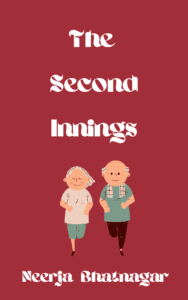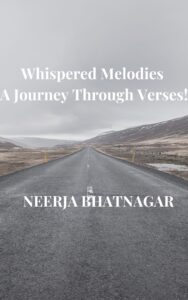
Navratri marks the beginning of a vibrant season of festivals for Hindus, leading to a string of celebrations filled with joy and devotion. After the nine days of Navratri and the triumph of good over evil celebrated on Dussehra, the focus shifts to Karwa Chauth—a significant festival for married women. Observed on the fourth day after the full moon in the month of Kartik (Kartik Krishna Paksha Chaturthi) according to the Hindu calendar, Karwa Chauth is a day of fasting and prayers for their husband’s long life and prosperity. ‘Karwa’ refers to an earthen pot, symbolizing peace and prosperity, while ‘Chauth’ means the fourth day of the waning moon. This festival beautifully weaves together tradition, love, and devotion.
Karwa Chauth is a significant festival celebrated primarily by married Hindu women in northern and western India. It is a day that beautifully intertwines love, devotion, and cultural traditions, symbolizing the deep bond between a husband and wife. The festival, marked by fasting and rituals, transcends mere observance and celebrates the essence of marital commitment and the sanctity of relationships.
The Legend Behind Karwa Chauth
Karwa Chauth is steeped in mythology, with several stories explaining its origin. One of the most popular legends is the story of Queen Veervati, who fasted for her husband’s well-being but was tricked by her brothers into breaking her fast early. As a result, her husband fell ill, but with her devotion and prayers, he was revived. Another tale revolves around Karwa, a devoted wife who saved her husband from the clutches of death with her sheer faith and devotion, leading to the name “Karwa Chauth.”
![]()
The Rituals of Karwa Chauth
The day begins before sunrise when women eat a ‘sargi’, traditionally prepared by their mothers-in-law. After this, they embark on a day-long fast, abstaining from food and water, until they see the moon at night. This fast is observed for the longevity and prosperity of their husbands.
Throughout the day, women engage in various traditional activities. Dressed in vibrant sarees or lehengas, they gather with other women to apply intricate mehendi designs on their hands and participate in a special puja. The rituals are accompanied by folk songs and stories, which keep the age-old traditions alive.
In the evening, women break their fast once the moon rises after offering prayers to the moon and their husbands. As part of the ritual, the husbands help their wives take the first sip of water and a bite of food, symbolizing their care and support.
Modern Celebrations: A Blend of Tradition and Contemporary Practices
While Karwa Chauth retains its traditional essence, it has evolved. In urban settings, the festival is not just about religious rituals but also about celebrating love and companionship. Many couples choose to fast together, making the day more about mutual respect and understanding in their relationship.
The advent of technology has also added a modern twist to the celebration. Online ‘sargi’ delivery services, virtual group fasts, and social media posts showcasing Karwa Chauth outfits and rituals have become a part of the festivities. However, the core sentiment of the festival—the love and devotion shared between couples—remains unchanged.
Karwa Chauth Beyond Boundaries
Interestingly, the spirit of Karwa Chauth has crossed regional and religious boundaries. Many women, irrespective of cultural background, now observe the fast, drawn to the festival’s message of devotion and the bond it strengthens between couples.
The Deeper Significance of Karwa Chauth
Though the focus is often on the rituals, Karwa Chauth offers a deeper reflection on relationships. It is a day when women pray for their husband’s longevity, but it also symbolizes trust, patience, and the sacrifices partners make for one another. In a fast-paced world where relationships are constantly tested, Karwa Chauth serves as a reminder to cherish and nurture the bonds we hold dear.
In essence, Karwa Chauth is not just a day of fasting; it is a celebration of commitment, love, and the beautiful journey of togetherness that couples embark on. It is a festival that has preserved its relevance and beauty through centuries, adapting to the changing times while remaining a symbol of undying love and devotion.
As Karwa Chauth approaches, may the love and blessings of this auspicious day fill your life with joy, peace, and unbreakable bonds!
Neerja Bhatnagar
Feel free to connect with me on social media if you’d like to stay updated on more content like this!
Instagram | Facebook | YouTube |Twitter |Podcast |
I have written 3 solo books and 3 anthologies. You can buy my books on Amazon. If you are on Kindle Unlimited, you can read them for free. Pls, do check and share your reviews.
This post is a part of ‘Feeling Festive Blog Hop’ hosted by Manali Desai and Sukaina Majeed under #EveryConversationMatters




What a amazing look at Karva Chauth. Its amazing to know how festivals brings out the profound essence of love and devotion.
Thanks Sameer!
In my area, we don’t celebrate Karwa Chauth but something similar to it like Savitri Brat. It must have been so challenging to do “Nirjal” fast. I have a deep respect for all ladies who do such a difficult ritual of fasting.
It’s about celebrating love and togetherness. Names do not matter. Is it similar to how Karwa Chauth is celebrated. Not everyone keeps Nirjala fast. fasting of not, the basis behind such rituals is to celebrate togetherness. And this is the beauty.
I am reading so many posts on Karwa Chauth today. I know of the story since it was retold every time we passed on the thalis. The way it is being celebrated is changing but it remains about love and devotion.
Very true, Madhuji! The format may change, but the basis remains the same – love!
I have seen the way Karwa Chauth celebrations have changed over the years. Now it seems more for the gram but at its heart, it remains a celebration of love.
Yeah.Totally agree. It’s both reel friendly and soul friendly now. As they say, change is the permanent constant.
I’ve been reading a lot of posts about karwachauth. Movies and soaps have hyped it to another extentand so does social media
Yeah. I feel, as long as the soul of the festivities is alive, modes of celebration does not matter. Moreover, everyone is free to celebrate the way they want. No hard and fast rule. That’s the beauty of Hindu festivals.
I too wrote a karwa chauth post! Although I’m glad to read your take on it, I personally don’t see the appeal of the festival but that maybe due to my single relationship status, I do enjoy the overall vibe in the market, and I have come to adore some of the mini traditions that I share with my mom who practices it. Reading about Karwa, and the other lady who truly were heroines of the day gives me better perspective.
Thanks !
Having seen my mother and other women around me performing rituals of Karwa chauth this post came as a surprise talking about the back story of the festival that I never heard
Good to know that this post has added some value to your knowledge. keep coming !
Well times are changing, Earlier only the men were bread winners so only women fasted, but I see many cosmopolitan men now fasting for their wives making it a two way street of commitment and caring.
Yes… I have never fasted on Karwa Chauth as my husband said, he can’t fast and would not like me to be fasting alone. It’s about how a couple feels like about the celebration.
Though I don’t believe in this tradition, I’m liking the fact that many men friends also fast during Karwachauth along with their wives. And also break their fast together. I think it’s lovely.
This is really interesting. I never heard though I have many friends from this part of the country. I think there is no suggested fasts for men for anything or wife’s long life because women generally have longer life than men. If a girl child is born premature or with medical condition, chances of her survival is more than a male child. Or may be Gods listen to women than men, hence the ritual. Whatever be the reason, I feel such traditions should be followed only if one has faith and no forced.
Karwa Chauth is celebrated with fervour in many North Indian states, and having been an Army wife, I have seen the way married women sit around in a circle and circulate their brightly adorned ‘thalis’, dressed in their traditional wedding splendour. Movies have also immortalised this custom. There are so many qualities that you have highlighted like patience, faith, trust and commitment, which are part of this tradition, all qualities that go a long way to enrich and enhance the special relationship between spouses.
thanks Deepti!
In Tamil Nadu we have something similar called Karadiyaar Nombu, a daybwhen women pray for the long life of their husbands. This is associated with the story of Savitri who brought her dead husband back to life. Every culture has its own festival, but with different names. But there is no festival where husbands pray for the long life of their wives, sigh!!
This is really interesting. I never heard though I have many friends from this part of the country. I think there is no suggested fasts for men for anything or wife’s long life because women generally have longer life than men. If a girl child is born premature or with medical condition, chances of her survival is more than a male child. Or may be Gods listen to women than men, hence the ritual. Whatever be the reason, I feel such traditions should be followed only if one has faith and no forced.
Loved this. I wrote a comment which was apparently not accepted… Just trying out this.
My Delhi years put me in touch with Karwa Chauth. I found it amusing when my girl students who were staunch feminists in class started glorifying Karwa Chauth after their marriage. Life is amusing especially because of Karwa Chauth and such rituals.
How intereting Neeja ji that both of us wrote on Karwchauth! I love dressing up for Karwa chauth!
On the same page!
I feel husbands also need to keep a fast on Karwa Chauth, since they are primary beneficiaries. It would be nice to see this support in celebrating life.
Many do keep. but I feel, it’s a very personal choice.
Yes, we’ll said that festivals like Karwa Chauth help couples and families build faith and trust in one another. They teach patience and self-control. I also reading the legend behind this celebration.
Thankyou Dr. Aparna for stopping by my blog. Happy to know your views about building relationships. We need more commitments towards relationships these days.
Reading words written by you after a long time Neerjaji, it’s refreshing. All my childhood I have seen my mom do all the puja and rituals mentioned by you here. Although my in-laws do not celebrate, I think it is illegal to leave a chance to dress up. So I do dress up and feel all festive vibes.
Thankyou Nilshree. Visit often. I write very regularly on diverse topics.